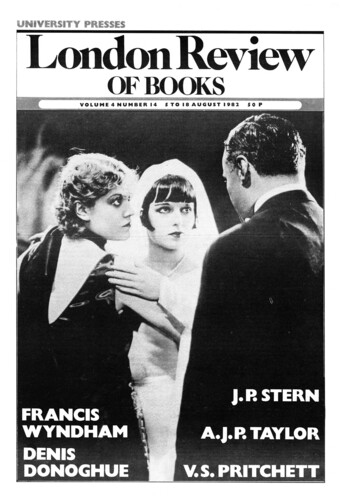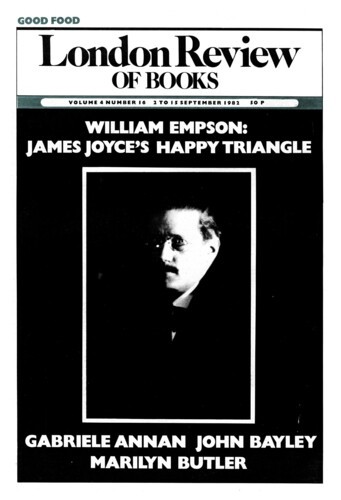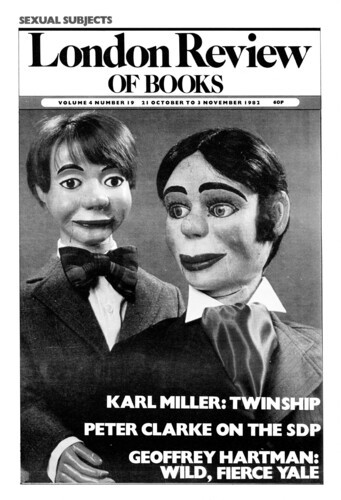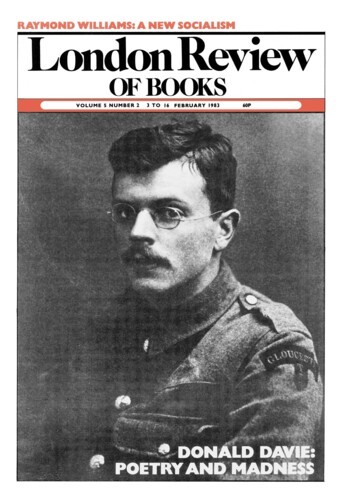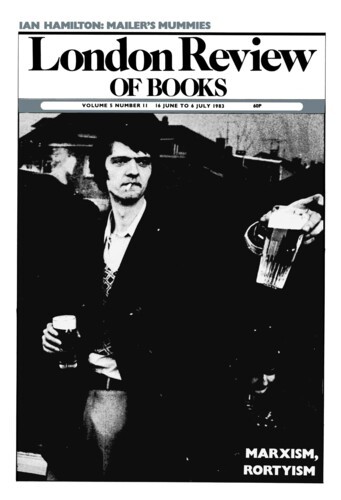Diary: Locating the G-Spot
Ian Hamilton, 5 August 1982
In America, when conversation stalls, your host will usually fall back on Current Talking Points. There are, you soon learn, two types of CTP. The first is to do with what he thinks is on your mind; the second with what is actually on his. Last week, the obvious ‘topic’ for a visiting Britisher was the Palace break-in – an event I had read about, though briefly, on the flight over. ‘What really happened?’ was the question put to me at least six times during the four days I was there. I was made to feel quite bad about not knowing. Taxi-drivers in particular would get rather shirty when it turned out that I had gleaned less from my Times than they had from their Daily News. One or two even seemed to think that I ought to know the guy who did it. They would say: ‘What’s he like, this Fagan?’ Or: ‘Is he nuts, or what?’ One particularly thoughtful fellow was convinced that the security collapse was the fault of those ‘big furry hats’ that guardsmen wear: ‘I mean, those things have gotta soften up the brain some, am I right?’
